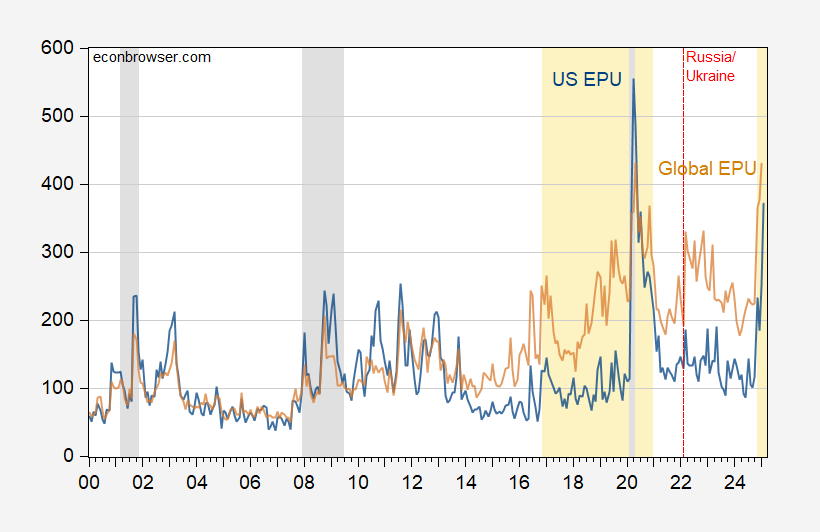as measured by Baker, Bloom and Davis’s EPU. I was in Europe, and conversations were in high gear about how things now seemed. And text mining confirms:
Figure 1: US EPU (blue), Global EPU (GDP weighted at market exchange rates) (brown). Orange denotes periods from election to end-Trump administration. NBER denoted peak-to-trough recession dates shaded gray. Source: policyuncertainty.com, and NBER.
Global EPU in January matches EPU in May 2022.

What we’re seeing, in policy uncertainty and in the felon-in-chief’s “flood the zone” campaign to overwhelm the courts, is an overturning of the rule of law.
Every change in government increases policy uncertainty, but this time is different. This time, it is not just the expression of law through regulation and enforcement that is uncertain, but adherence to the law at all.
Liberals and conservatives might conceive of the rule of law differently – liberals emphasizing protection of the weak against the strong, conservatives emphasizing property rights – but they agree the the rule if law is foundational to our way of life.
Authoritarians, on the other hand, see laws as a way of exercising power – applicable to others, but not to themselves. The law is if no use, and so is not applied, unless it serves the authoritarian’s ends.
An executive declaring that the courts have no authority over executive action is declaring itself exempt from the rule of law. In the same way, when the executive refuses to spend money allocated in legislation, suspends the operation of government agencies created through legislation, those actions violate the rule of law.
Any public official, journalist, scholar – any citizen – who doesn’t speak out against overturning the rule of law betrays the principles on which this nation was founded. That’s where we are.
Agreed.
Since the person breaking the law is “immune” we are out of options. Why didn’t Nixon and Clinton think of this??